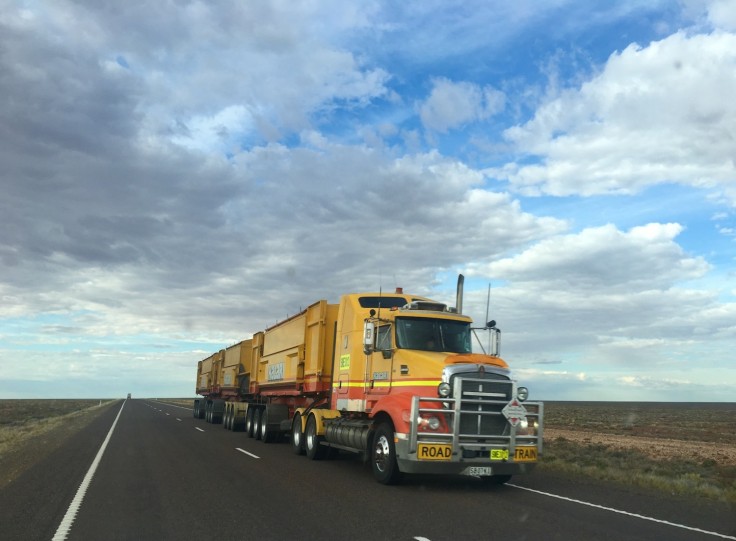
The trucking industry is constantly evolving, and technology has played a big role in this transformation. Over the last decade, we've seen radical changes in how goods are shipped from one place to another-from self-driving vehicles to digital freight optimization systems.
In this blog post, we'll explore four ways that technology is revolutionizing the trucking industry and what these innovations mean for us now and into the future. We'll take a look at the current climate of truck transportation as well as where it's headed, giving you an inside look at an integral part of our supply chain infrastructure.
Automated Driving Technology
Automated driving technology is revolutionizing the world of trucking fleets. Long hours on the road can take a toll on even the most seasoned driver, resulting in fatigue and increased accidents. According to statistics, accidents caused by fatigue result in 800 fatalities and over 50.000 injuries. This is where automated driving technology comes in, providing a level of safety and efficiency that drivers alone cannot match.
It's important to note that although automated driving technologies are beneficial for the transportation industry, they cannot reduce driver fatigue. So it is still crucial for drivers to take regular breaks to minimize the risk of errors while driving.
These futuristic-looking trucks are equipped with a range of sensors, cameras, and other advanced technology that allow them to navigate roads safely and consistently. The adoption of autonomous trucks is also expected to bring benefits such as reduced fuel consumption and easier highway driving. Although there are still concerns surrounding safety and job security, these self-driving trucks offer a glimpse into what the future of transportation might hold.
Telecommunications and Informatics Software
Trucking companies are increasingly relying on telecommunications and informatics software to increase their efficiency in managing freight shipments. With this technology, dispatchers can easily track and route trucks, allowing them to plan better routes for faster delivery times. Additionally, they can monitor driver and vehicle performance in real-time, such as fuel usage and speed, so that operators can make informed decisions about how to best utilize their resources.
Trucking companies can use truck telematics to get better insight into their day-to-day operations. This technology collects data from connected vehicles via GPS and other sensors, offering detailed information such as speed, route taken, driver behavior, fuel consumption, and more. All of this data can then be used to track performance and identify areas for improvement.
Additionally, truck telematics can be installed in newer-model trucks, and their use can help enhance fleet productivity, boost driver performance, and prevent mishaps and mechanical issues. This technology also helps companies stay on top of upcoming regulations and industry standards, providing the necessary data for compliance. With these tools, trucking companies can reduce their costs while increasing customer satisfaction with faster delivery times.

Implementing Advanced Navigation Systems
In addition to the convenience and efficiency benefits of advanced navigation systems, trucking companies implementing this technology can also realize significant cost savings. Routes that consume more fuel due to heavy traffic or inefficient highway infrastructure can be avoided by avoiding traffic delays. This helps reduce fuel costs significantly over time.
Real-time traffic updates enable drivers to make better decisions on the go and can reduce fuel costs by helping them find alternative routes to their destinations that are more efficient. This has the potential to save trucking companies a great deal of money in fuel expenses. Finally, advanced navigation systems also help increase driver safety as they can help drivers avoid dangerous roads or areas where accidents may occur. This helps reduce the risk of serious accidents, which can help trucking companies save on insurance costs.
Overall, advanced navigation systems for trucks are not only beneficial in terms of convenience and efficiency, but they also offer tangible cost savings across multiple areas. As such, any trucking company looking to improve its operations should seriously consider implementing this technology.
Cloud-Based Services
The freight industry is just one of many that has benefited from the rise of cloud-based services. With the help of cloud computing platforms, companies across the globe are now able to share data more easily than ever before. This is especially helpful in the fast-paced world of freight logistics, where swift delivery is key.
By sharing information via the cloud, companies can ensure that shipments move from one location to the next in a timely and efficient manner. This not only benefits the businesses themselves, but it also benefits consumers who rely on the timely delivery of their goods. The cloud is truly transforming the way we do business.
Bottom Line
As the trucking industry evolves, staying ahead of the times is paramount. It is not enough just to keep up with current trends; companies must innovate and find ways to outpace their competition. By leveraging technology, trucking companies can create greater efficiency in operations and customer experiences while simultaneously decreasing costs.









